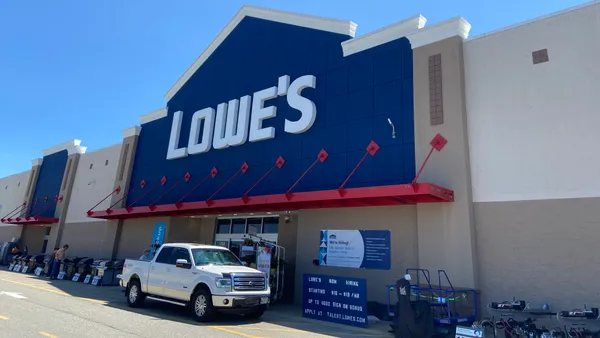Dive Brief:
-
Tower Records founder Russ Solomon died on Sunday at age 92, awaiting a whiskey refill and watching the Oscars broadcast with "a smart-aleck remark on his lips," the Sacramento Bee reports.
-
After nearly 50 years in business and amid massive changes in recorded music retail that undid much of Solomon's own disruption, Tower Records shuttered in 2006.
- Yet independent brick-and-mortar music retail has held its own, finding growth opportunities to open many new stores nationwide. The industry every year celebrates "Record Store Day," in which stores across the country hold music events and special releases, and a vestige of Tower Records itself continues on in Ireland.
Dive Insight:
Solomon was a music retail legend, bringing specialization, including buyers and staff with expertise and amenities like listening rooms in cavernous emporiums. His innovation helped spark local and regional entrepreneurs in the space in the 70s and 80s, before crushing debt and changes in how music is bought and consumed led to the company's bankruptcy in 2006. But eight years later, the familiar font and the company's indie vibe was revived with two Tower Records stores in Ireland.
RIP Russ! We're keeping the flame well and truly lit. #RussSolomonhttps://t.co/K68lPSZDgn pic.twitter.com/1FWpqI0Led
— Tower Records Dublin (@TowerDublin) March 5, 2018
Solomon's impact on music retail was captured in director Colin Hanks' 2015 documentary about the company, All Things Must Pass, in which Bruce Springsteen famously said, "If you came into town, you went to Tower Records."
Solomon's Tower, like beauty sales today, disrupted department stores' record sales by creating a new area of specialty retail, according to Chris Brown, chief financial officer at New England record store chain Bull Moose. Brown (also CFO at "lean retail" firm Fieldstack, which has made a business of algorithm-based commerce solutions first conceived at Bull Moose) helped create the industry's annual "Record Store" day, which invites music fans and musicians to gather in actual spaces for special events and releases.
"Before, it was the big wall of 45s at Woolworths," he told Retail Dive in an interview. "Russ was a visionary guy, who had a huge influence on the business."
While music file sharing is often implicated in Tower's struggles (which happened well before the streaming of today), the chain also failed to match prices instituted by big box stores like Best Buy and Target, which tagged margin-losing numbers on popular releases, Brown also said.
"When the big box stores started getting really aggressive on price, others followed, and those are the folks that are still around," Brown said. "The hits became the loss leader for everybody, but it was a traffic builder — and the concept worked great for independent retail too. But I don't believe that Tower ever played the price game. The ones who wouldn't do that are all gone."












